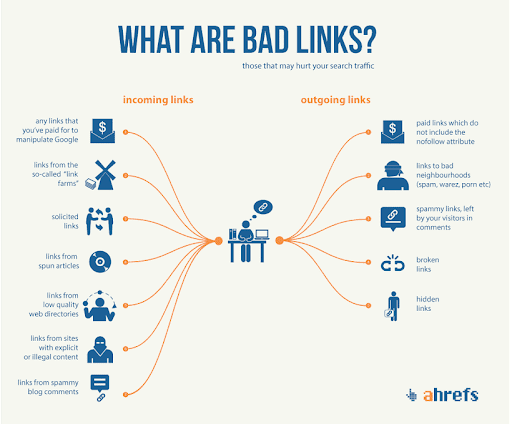Everything changes with time, and hopefully, this should also include your website!
Websites require constant monitoring to perform at their best. Indeed, for a website to rank well in the Google Search Engine, generate website traffic, and convert leads into valuable sales, businesses need to audit and keep an eye on the factors affecting the website’s overall performance.
But where should you start with this, and what are the main aspects to take into consideration when performing a website audit?
Before we jump right into that, we should perhaps first discuss what a website audit is and why it’s so essential for businesses to conduct website audits regularly?
What is a Website Audit?
Based on Wikipedia, a website audit is a full analysis of every factor influencing a website’s visibility in the search engines.
This means that, with the help of website auditing, marketers reflect on the current state of the website to determine its performance and whether there are any site errors, areas of opportunity, strengths, and weaknesses before making any significant changes in website design or SEO strategy.
A website audit sets a benchmark for businesses and gives a thorough insight about how to move forward by giving a workable plan that helps to:
- Increase web traffic
- Bring in more conversions by improving the user experience
- Provide an overview of the website’s SEO performance
- Bring to light any flaws or deficiencies within the website
- Compare the website with its competitors to determine how well they are performing
Why a Website Audit is Essential
Any firm could find itself lost with maintaining records without regular audits; similarly, a website can easily become a lost cause (from the marketing perspective, at least) without performance checks and audits.
Of course, we shouldn’t ignore the fact that Google is altering and changing its algorithms and ranking factors almost daily for an improved user experience. Gone are the days when keyword stuffing and adding a few backlinks would make you rank higher on Google!
To keep up with the changing trends and score a stronger position in the Google Search Engine, businesses have to work hard – which is where website auditing comes to the rescue.
Below is a list of reasons as to the importance of website audits.
- Website auditing improves the overall performance of the website by identifying areas of improvement with content and technical issues.
- It boosts the website’s SEO and helps optimize conversion rates.
- It helps make the website more relevant, enhance the user experience, and highlight any areas of growth.
- Most importantly, it allows businesses to analyze their competitors and what they’re doing right.
Now that you’re hopefully convinced that a website audit is essential, let’s discuss some of the 8 easy steps to make it happen!
Conducting a Website Audit in 8 Easy Steps
There is no recommended number of steps to conduct a website audit, and each marketer will have a different checklist for performing one. Still, following the steps below will set you in the right direction to conduct a comprehensive website audit.
1. Content Audit / On-Page SEO
Content gives soul to a website; it’s how businesses interact with users.
A content audit serves as the base and foundation for the content strategy of any business. It helps provide insights on what type of content to create, re-create, update, or remove from the website.
Since content is one of the main factors impacting SEO, a content audit also includes a deep analysis of the website’s on-page SEO factors, such as:
- Which content is performing well?
- Are keywords making the website rank higher in the search engine?
- Is your keyword research effective, and have you got the correct placement of high-value keywords?
- Are your meta descriptions enticing potential readers?
- Have you implemented proper use of heading tags, image ALT tags, and the like?
2. Backlink Auditing & Off-Page SEO
Think of a backlink as a ‘vote of confidence’ for a website. It builds trust, and Google knows that the content on a website is valuable enough for another website to refer to. This is why backlinks are essential for SEO and ranking high in the SERPs.
Backlink auditing and off-page SEO analysis include the following:
- Review the current links on the website for relevancy.
- Ensure that the links are of a high-quality and are from trustworthy websites.
- Remove spam links from the website.
- Identify broken links and fix 404 error pages.
- Remove any indexed pages with low-quality content and review the sitemap.
- Delete any duplicate versions of the web pages that are indexed by Google (this can be checked through the Google Search Console.)
- Identify bad links that link back to your website and disavow them using Google Disavow Tool.
Here is an excellent explanation of bad links by Ahrefs:
3. Website Speed Analysis
Did you know that the ideal loading time of a website should be (ideally substantially) less than 5 seconds? Any time after that will increase the bounce rate which, in turn, will make the website lose its credibility in Google’s view. This is why it’s so important to keep checking the loading time of your website.
The easiest way to test a website’s loading speed is to use the PageSpeed Insights tool.
- Choose the hosting service provider wisely for better server response times.
- Remove unnecessary files and plugins to avoid cluttering your website.
- Optimize images and compress them to reduce loading times.
4. Mobile Responsiveness
Nearly 60% of all search queries worldwide come from mobile devices. As such, businesses can lose a large chunk of traffic if the website is not responsive and mobile friendly.
While auditing the website, it’s essential to ensure that the website is easy to navigate on a mobile device; as such, the buttons must be placed correctly, the content should be minimized as per the resolution of the screen, and all the other elements of the website must function properly.
Here is one of the simplest Google tools to check if the website is mobile-friendly.
5. Security Audit
- Your website should have an SSL certificate.
- Use strong passwords and change them frequently.
- Delete inactive user accounts and unused plugins/themes to avoid vulnerabilities.
- Scan the website to check for security breaches.
Here is a more detailed article if you want to further learn about ways to boost your website security.
6. Analytics Audit
“If you can’t measure it, you can’t improve it!”
Rightly so!
Google Analytics helps marketers keep track of and collect data on what pages are bringing in the most traffic and what type of content is creating engagement overall.
Unfortunately, just installing Google Analytics likely won’t help all that much. Your website still needs to be properly configured and the code should be set up on all of the important pages to ensure that any data collected is accurate and reliable.
During the analytics audit, verify installation of the GA and ensure there is only one code activated on a single page for the most accurate data collection.
7. Accessibility Audit
The main goal of a website is to be as accessible as possible to the largest number of users. This also includes those who have disabilities or live in a geographical location with stricter laws.
Fortunately, an accessibility audit is about making the website compliant with any laws and regulations as set out by GDPR or CCPA. It should provide a decent user experience to any potential users.
Adding features such as a text-to-speech converter, or keeping the content simple, can help people with impaired vision, motor difficulties, and other impairments to more easily navigate through your website.
8. Competitor Audit
- Identifying online competitors by using industry-relevant keywords.
- Analyzing website design and outlining the content that’s making them rank higher.
- What kind of keywords your competitors are ranking for and what backlinks they are getting?
What’s Next?
By evaluating your content, identifying issues and technical errors, gauging the missed SEO opportunities, and comparing your website with its main competitors, audits can provide a valuable base for a complete re-branding of a website.
Most of the steps we have mentioned are non-technical; still, when you have a business to manage, a huge website with lots of internal pages can be hard to manage. But, if you’re finding all of this cumbersome, hire a consultant or an SEO expert to help with the website audit.
Did you find this blog helpful? Please let us know in the comments below.





